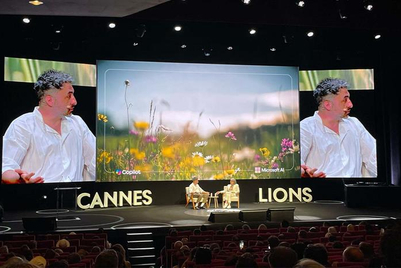Google is blocking some news publishers from appearing in search results for a small number of users in Australia, as part of an 'experiment' it is conducting to build its defence against proposed news legislation.
The search giant began tweaking its algorithm earlier this week to remove Australian news publishers such as The Australian, The Australian Financial Review, The Guardian and The Sydney Morning Herald from appearing in news-related search results for a select number of users.
Instead, those users were guided to content from other sites or presented with old articles, according to The Australian Financial Review, which first reported the experiment.
A Google spokesperson confirmed it was running "a few experiments" in Australia to "measure the impacts of news businesses and Google Search on each other".
The experiments will reach "about 1%" of search users, the spokesperson said, and are due to finish by early February.
Australia's treasurer Josh Frydenberg, who has been driving force for greater tech regulation in Australia,
said in response to the move that Google should "focus on paying for original content, not blocking it".
The search experiment has added fire to an already heated battle between tech companies, publishers and the Australian government over "world-first" legislation—due to come into effect this year—that will force Google and Facebook to share ad revenue with publishers.
The fight kicked off
in April last year when the Australian government announced it was preparing a mandatory code of conduct that would force tech companies to pay for news they carry. Until then, negotiations about the value exchange of publishing news online between the platforms and publishers had been cordial. But "insufficient progress" had been made toward the development of a voluntary code of conduct, Frydenberg said at the time. Facebook and Google both expressed discontent over the development, after "working hard" to be "collaborative partners".
Following Frydenberg's announcement, the chairman of Nine Entertainment, one of Australia's biggest media companies, argued that the tech giants should pay 10% of their advertising revenue in Australia—estimated by the government at some AU$6 billion (US$3.9 billion) per year—to the news industry. The hefty figure prompted an
unusually firey response from Google Australia managing director and VP Mel Silva, who penned a blog post in June calling the figures "inaccurate" and claiming the
economic value Google gets from news content in search is "very small".
Silva
took the defense a step further in August, when she penned an open letter to Australian users claiming that the proposed 'News Media Bargaining Code' would force Google to deliver a "dramatically worse Google Search and YouTube" and would put "the free services you use at risk in Australia".
Google believes it already provides a "substantial two-way value exchange" to publishers in Australia—claiming it provided AUD$218 million in value to news media in 2018 "through referral traffic alone".
The spokesperson today (January 15) said Google "remain[s] committed to getting to a workable code and look forward to working with the Senate Committee, policymakers, and publishers to achieve an outcome that’s fair for everyone, in the interests of all Australians."
Google's test to hide news publishers from search results follows a similar threat from Facebook.
In a September blog post written by Will Easton, MD of Facebook for Australia & New Zealand, the company said it would "reluctantly" prevent the sharing of news content on Facebook and Instagram for Australian users if the 'News Media Bargaining Code' gets the greenlight.



.jpg&h=334&w=500&q=100&v=20250320&c=1)



.png&h=334&w=500&q=100&v=20250320&c=1)



.png&h=334&w=500&q=100&v=20250320&c=1)





.png&h=268&w=401&q=100&v=20250320&c=1)
.png&h=268&w=401&q=100&v=20250320&c=1)

